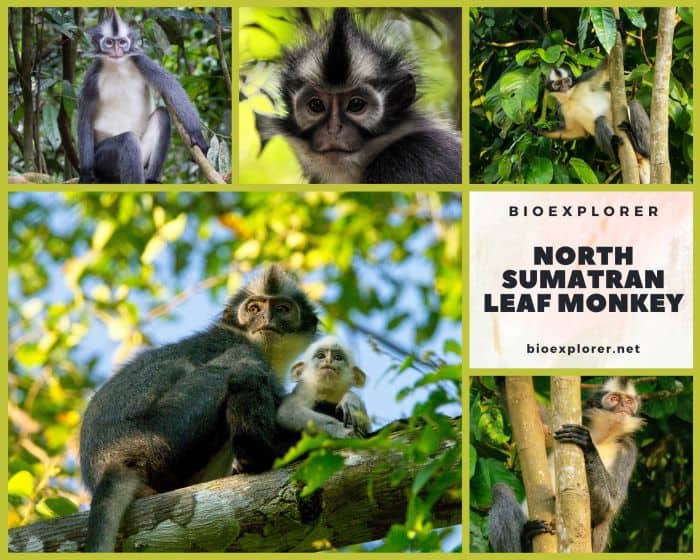
| Animalia | Primates | Cercopithecidae | Presbytis | Presbytis thomasi |
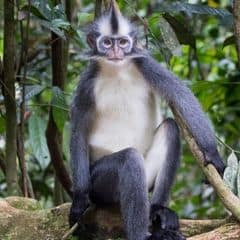

- Common Names: North Sumatran leaf monkey, Thomas’s langur
- Taxonomy Classification Year: 1892
- Monkey Size: 92 to 147 cm (36.22 to 57.87 in)
- Skin Color(s): Black, Gray and White
- Habitat: Forest, rainforest
- Diet: Omnivorous
- Native Countries: Indonesia
North Sumatran leaf monkey Distribution
North Sumatran Leaf Monkey Characteristics
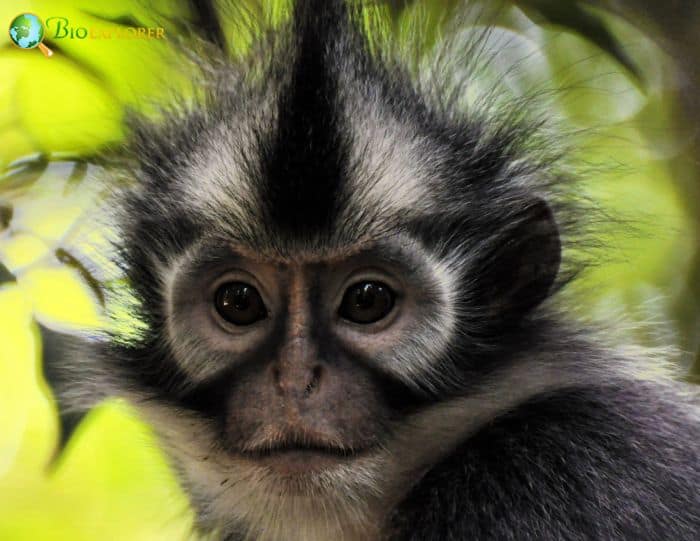
The North Sumatran leaf monkey[1] (Presbytis thomasi), also called Thomas’s langur, is a primate species in the Cercopithecidae family.
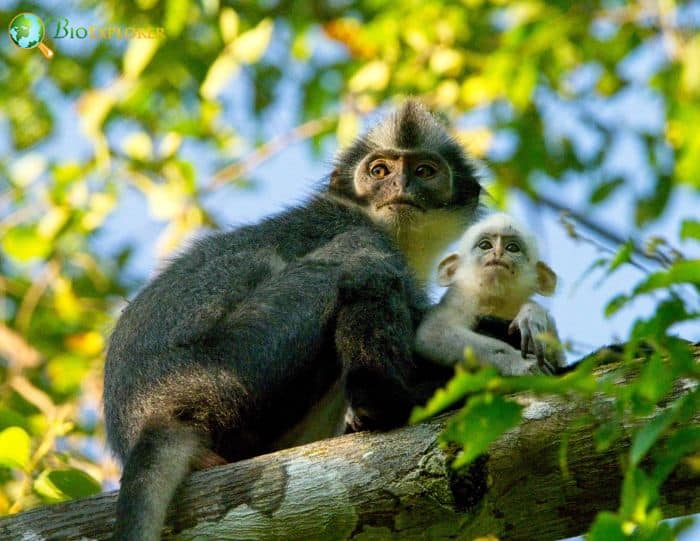
- This Old-World monkey is native to North Sumatra, Indonesia. Its natural habitat is tropical or subtropical dry forests.
- North Sumatran leaf monkey has a very distinctive appearance. Because of their unique facial coloration, it’s easy to distinguish North Sumatran leaf monkeys from other primates.
- The white fur on the underside and arms (in contrast to the black fur surrounding the rest of the body) continues to the neck.
- Two more white stripes, beginning at the crown, run down the sides, meet at eye level in a V-shape, and run around it.
- A silvery-purple undercoat forms rings around the orange-brown eyes. In the dark shade, you can see their pink skin. The same pink skin covers the snout.
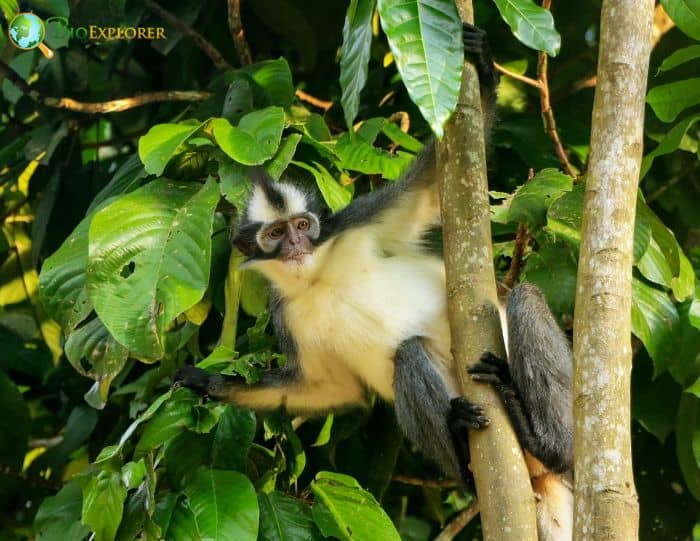
What Do north Sumatran leaf monkeys Eat?
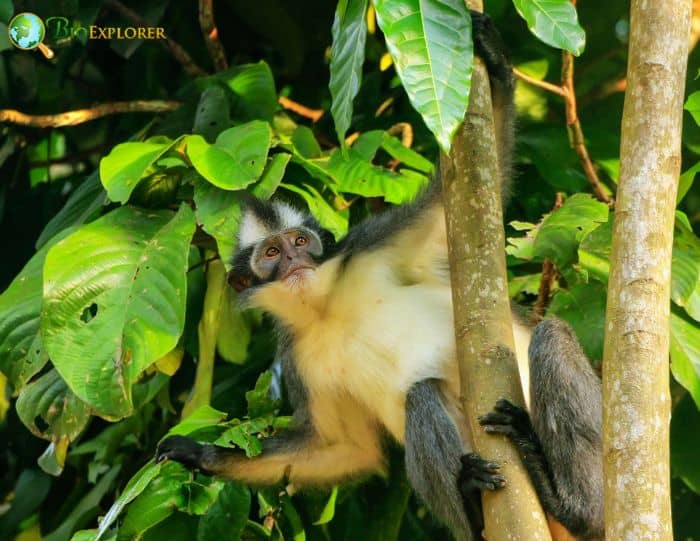
The north Sumatran leaf monkey feeds on these plant matters namely[¶]:
- Bishopwood (Bischofia javanica)
- Cowa Fruit (Garcinia cowa).
- Weeping Fig (Ficus benjamina).
- Argus Pheasant Tree (Dracontomelon dao).
- Council Tree (Ficus altissima).
- Clustertree (Ficus racemosa)
- Pulasan (Nephelium lappaceum)
- Fig (Ficus)
- Javanese Treebine (Cissus nodosa).
- Ilang-Ilang (Cananga odorata)
- Brown-Woolly Fig (Ficus drupacea).
- Myrobalan (Terminalia bellirica)
- Oriental Trema (Trema orientalis).
- Jacareuba (Calophyllum brasiliense)
North Sumatran Leaf Monkey Facts
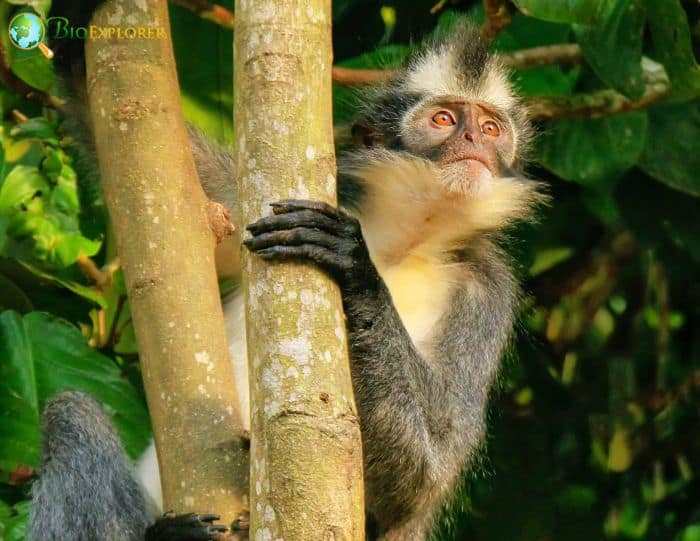
- The North Sumatran leaf monkeys spend most of the day in groups resting, moving, or feeding.
- In males and females, a dominance hierarchy may depend on an individual’s age or ability to defend themselves against other group members.
- Although this leaf monkey is known to have a calmer demeanor in responses and gestures towards its conspecifics than other primates, competition within groups has been observed.
- Many factors influence a woman’s decision to leave her group and join another. These include food competition, risk of predation, and avoidance of inbreeding.
- Vocal communication is more intense and common at dawn. It is used in various situations, such as attacking, relocation, establishing sleeping positions, and defending mates and territories.
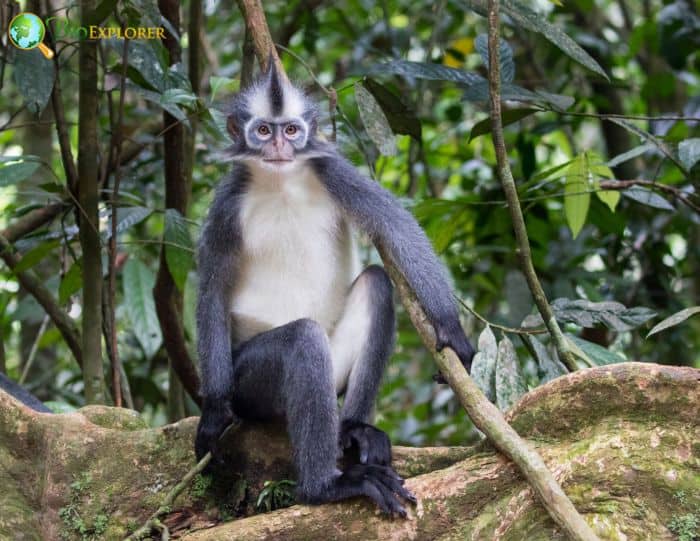
Suggested Reading: All Kinds of Monkeys
Cite This Page
APA7MLA8Chicago
BioExplorer.net. (2025, May 28). North Sumatran Leaf Monkey. Bio Explorer. https://www.bioexplorer.net/animals/mammals/monkeys/north-sumatran-leaf-monkey/.
BioExplorer.net. "North Sumatran Leaf Monkey" Bio Explorer, 28 May 2025, https://www.bioexplorer.net/animals/mammals/monkeys/north-sumatran-leaf-monkey/.
BioExplorer.net. "North Sumatran Leaf Monkey" Bio Explorer, May 28 2025. https://www.bioexplorer.net/animals/mammals/monkeys/north-sumatran-leaf-monkey/.











